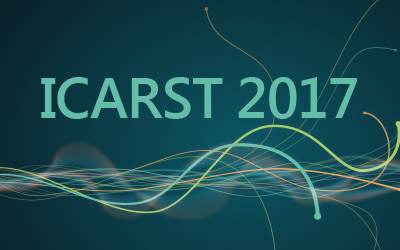Speaker
Ms
Andrea DOCTERS
(Comision Nacional de Energia Atomica, Argentina)
Description
For more than $50$ years, commercial radiation processing has been used for healthcare products, food and other applications with a main goal in common, which is adding value to products, achievable only if predetermined specifications are met. Technology, process control, standards, quality management systems and personnel training, are some of the many branches which constitute good irradiation practices which should lead to safe and quality products. The introduction of Management Systems for Facilities and Activities
(IAEA’s GS-R-3), which through the integration of safety, health, environmental, security, quality and economic elements in a single structure, establishes requirements to be met in order to ensure the protection of people and the environment, enables irradiation facilities to work with unified objectives. The further incorporation of social responsibility principles into the overall management activities helps to increase credibility to society, and motivate and
promote commitment of workers, an essential factor to develop safety and a good irradiation practice culture, by understanding actions generate impact on products, environment, organization, employees, community and other stakeholders.
The implementation of social responsibility at CNEA’s irradiation facility (PISI) was originally set out with three main objectives: its integration to safety, health, environment, quality and good irradiation practices management systems; relationship consolidation with community and stakeholders; and as an
instrument to deploy potentials in different areas by increasing its human capital.
This process was divided into three phases.
The research phase consisted in selection of the ISO 26000 standard; the
identification of overall applicable regulatory framework, including international treaties and further evaluation of our degree of compliance; and formulation of an implementation plan. The training and awareness activities consisted of a thorough study of principles and core subjects defined in the standard.
The planning of the application phase was based on the need to prioritize the increase of human capital as it is the main actor in PISI’s activities, which
included training the senior management team to strengthen governance as
well as activities to improve communications, relationships, teamwork, staff motivation and exercise of individual and group self-evaluation, and promoting participation in continuous improvement of processes. Other activities included worker’s biopsychosocial health care, the identification of stakeholders and expectations, and so on.
Relevant results were the elaboration of a shared vision statement and
values between members of PISI; strengthening of governance
performance; increase of commitment; development of self-evaluation
and communication tools; stakeholder’s map.
Although societal impact is still not measurable, the implementation of social responsibility in a public domain irradiation facility is possible and replicable. Principles and core subjects are closely related and directly or indirectly contemplated in integrated safety, health, environment management, quality and good irradiation practices, and contribute to increasing cultures and consolidation of relationship with stakeholders.
| Country/Organization invited to participate | Argentina |
|---|
Author
Ms
Andrea DOCTERS
(Comision Nacional de Energia Atomica, Argentina)
Co-authors
Ms
Cintia CALDEZ
(Comision Nacional de Energia Atomica, Argentina)
Ms
Maria LUCUIX
(Comision Nacional de Energia Atomica, Argentina)

